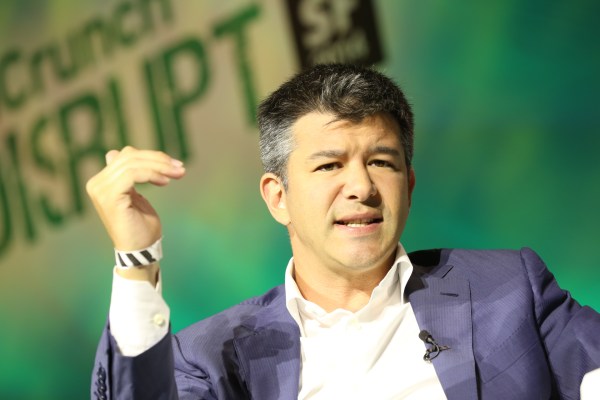Uber CEO Travis Kalanick is facing a possible fine or jail sentence in Korea after prosecutors charged the company and its founder with violating local transportation laws, according to Yonhap News.
The controversial U.S. taxi booking service is currently under pressure from authorities in Taiwan and Thailand right now, but barely a day seems to pass without some regulator or government somewhere taking exception to its business model. These charges in Korea, however, are more substantial than the ban that Uber tends to attract.
Kalanick and the head of local car rental service MK Korea are charged with violating transportation laws which forbid rental car businesses from offering passenger transportation services using their vehicles.
Yonhap News reports that Korea’s courts could dole out substantial fines or, potentially, a prison sentence of up to two years.
Uber launched in Korea in October, but authorities declared its service to be illegal even before it arrived. Things have continued on that path ever since, and the government is now even offering rewards to citizens who report drivers operating via unlicensed taxi services, a move that is almost certainly aimed squarely at Uber.
The U.S. company hit back at the whistle blower campaign by claiming it is in breach of the Korea-US Free Trade Agreement.
“We would like to call upon all parties to stop the unnecessary confrontation and approach this issue in a mature manner with a view to providing the kind of service that the citizens of Seoul deserve,” Allen Penn, Head Of Asia Operations for Uber, said in a statement last week.
Today’s news suggests that there is no imminent sign that Korean authorities will back down from their position against the company, and it will be interesting to see what comes next in this saga.
Update:
We’ve received the following statement from Uber, “Uber Technologies respects the Korean legal system and will provide its full cooperation We firmly believe that our service, which connects drivers and riders via an application, is not only legal in Korea, but that it is being welcomed and supported by consumers. At the same time, Uber does not believe it is appropriate for authorities to seek to punish drivers who are trying to make a living through this service. We are confident that the Korean court will uphold a fair and sensible judgement on this case.”
